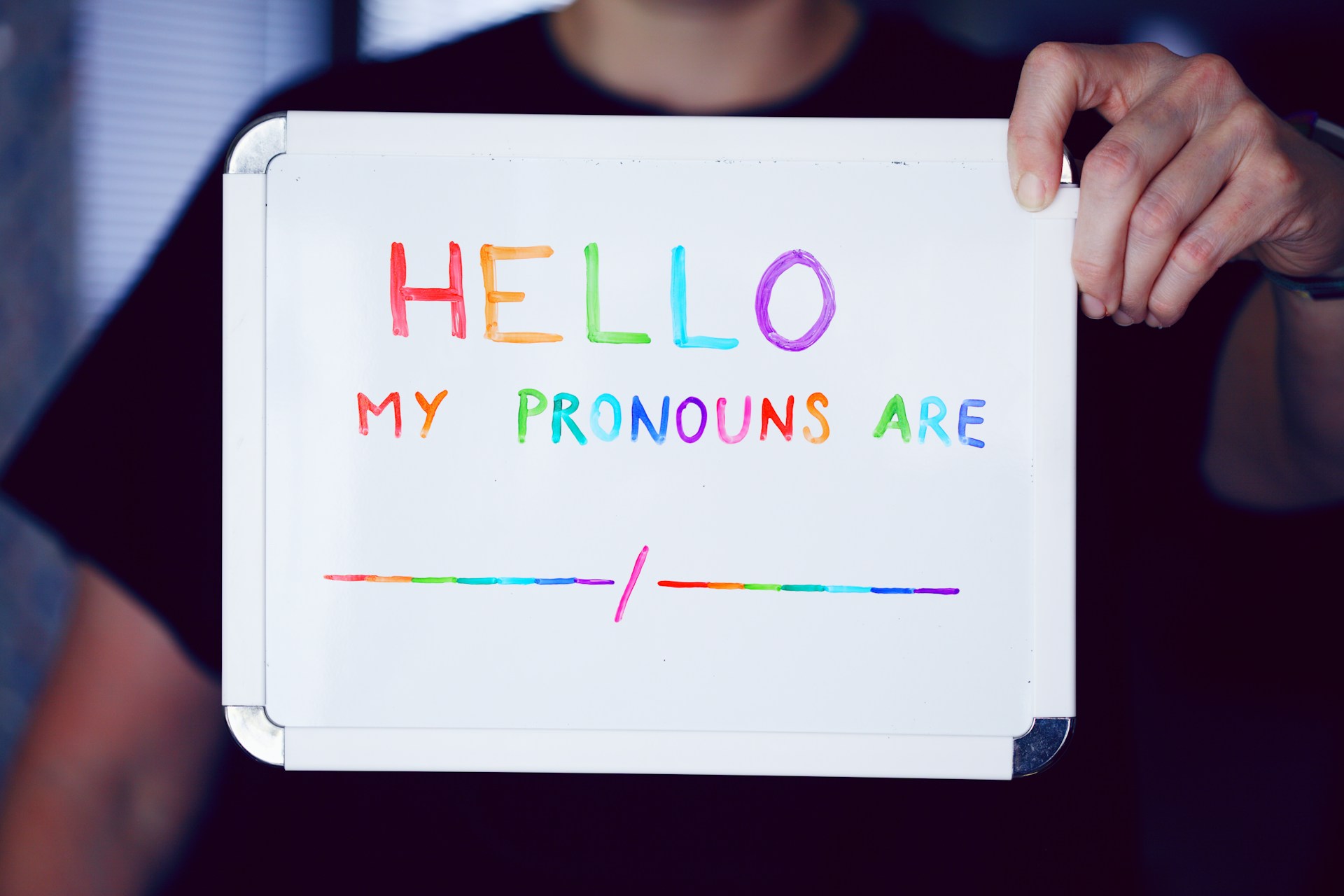Creativity, Writing
Rev Gav
Sex, Gender, and Sexuality
When I was growing up there were narrow categories in which one had to fit. Biological sex was either male or female, and the words sex and gender were used interchangeably. If you were biologically male then your gender was male and if you were biologically female then your gender was female. Your sexuality could be gay, lesbian, or straight.
I grew up in a binary world — a world where I did not fit the categories.
From as far back as I can remember, although my biological sex was and is male, I did not fit society’s narrow categories of gender and sexuality. I felt confused, alone, isolated, and that there must be something wrong with me. It took me 52 years and the development of a fuller understanding of sex, gender, and sexuality before I could fully describe who I am. For all my childhood and adult life I have had to deny, ignore, or mask who I am, and this ‘repression’ has undoubtedly affected my relationship with God and others. With regards to God, I felt like I was a mistake or ‘wired incorrectly’. With regard to my relationships, I played the role that I had been assigned by society — and still do.
My own struggles with expressing my sex, gender, and sexuality have given me an empathy for those who, like me, have also struggled. I am an ordained priest, and the very fact that God called me into full-time paid Christian ministry was an extraordinary an act of welcome and acceptance, yet I am still on the journey to a place where I no longer say, “Yes, but…”
I am sure that the language of sex, gender, and sexuality will further develop and change. From the narrow categories of male, female, straight, and lesbian/gay, we became familiar with the initials LGBT which became suffixed to LBGTQ, LBGTQIA, and finally LGBTQIA2SP+ as we expanded the acronym to become more inclusive of different sexes, genders, and sexualities. I tend to refer to this group as the ‘rainbow community’ that embraces everyone, however, the problem with the acronym is that it muddies or lumps together sex, gender, and sexuality.
Human beings have three things.
1. A biological sex (which may or may not be the sex assigned at birth).
2. A gender.
3. A sexuality.
In terms of Biological sex, I wrote an article about biological sex and its complexities – see the link at the end of this blog post.
Gender is no less complex, and because gender is how we self-identify on the inside, and may have no discernible ‘outward’ expression, only we, ourselves, can truly say what gender we are. A trans person is someone who, knows they are a different gender to their biological sex (or sex assigned at birth), and chooses to express their gender outwardly and physically. A non-binary gender, bi-gender, gender queer, or gender fluid person is someone who identifies as neither male nor female, or identifies in part or fully, either concurrently or at different times, as both male and female.
Sexuality is again, no less complex. If you will excuse my clumsy words, I tend to think of sexuality as to whom you are attracted or not sexually attracted. This is not the same as romantically attracted, and I fully acknowledge there are other aspects to human relationships that are not covered by the three areas of sex, gender, and sexuality. Bearing this in mind, sexuality again can be static or fluid. One can be attracted to any multiple or combination of biological sex and/or expression of gender.
For those of us who have grown up in a binary world — a world of male or female and gay or straight, we do not yet have a fully developed and adequate language of sex, gender, and sexuality, but for me, at least, being able to say there are three aspects to my identity has been useful.
It will take a long time for society to catch up, and even though we have begun to make inroads into acceptance, sometimes society has taken a step backwards with high-profile figures and governments unable to accept there can be a difference between sex assigned at birth and biological sex, for biological sex can change and this is a fact. They also deny that there is a difference between biological sex and gender.
Humans like to categorise things, it is what we do. We like to name things, give them labels, and put them in boxes. Playing this game, I did wonder if being able to express sex, gender, and sexuality with a set of numbers (0 for feminine, 1 for masculine, 2 for neither or both) might be helpful, but realise it still does not adequately express the fullness of identity — especially for those that are non-binary.
For the time being we need to honour a person’s current (not assigned at birth) biological sex and gender as two distinct aspects of their identity — whether outwardly expressed or not — and also honour their sexuality, although perhaps the latter is their own business. And perhaps, one day, we will not need to know, but just love and accept people as we find them and for who they are, just like God does.





 and then
and then